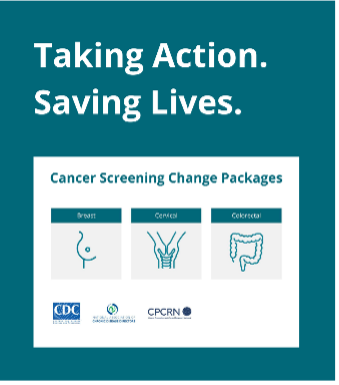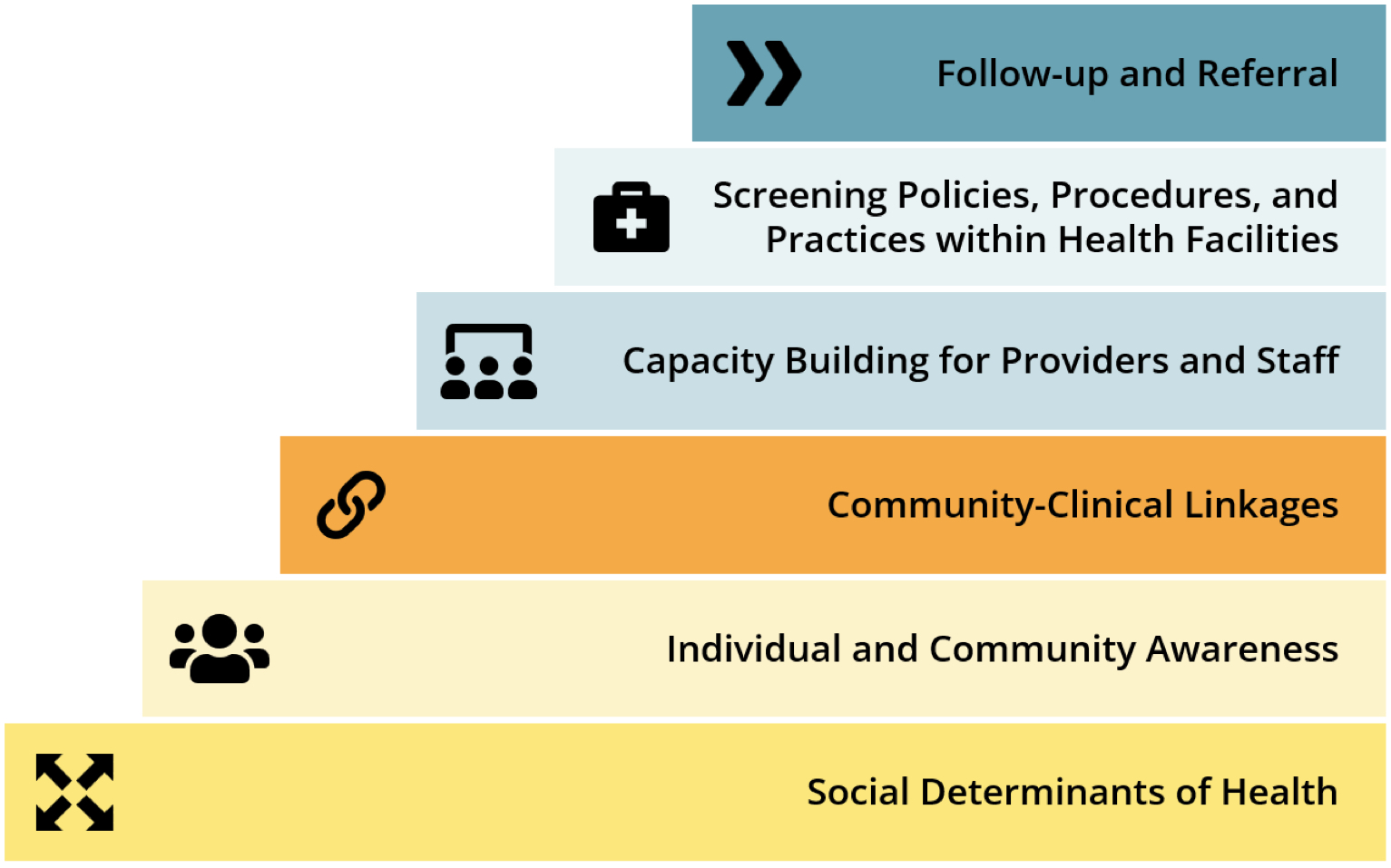Cancer Screening Change Packages
A Tool to Support Healthcare Providers and their Public Health Partners
in Providing Equitable Access to High Quality Screening
Cancer screening has been shown to reduce mortality from some of the most common cancers including breast, cervical, colorectal, prostate, and lung cancer. Despite this positive potential for saving lives, the overall rate of cancer screening remains lower among individuals from racial and ethnic minority groups compared to white their white counterparts. Many factors can influence whether a person receives recommended cancer screening. Among these are socioeconomic and structural barriers including the availability of health insurance, travel distance to and from screening sites, understanding of the screening procedures and benefits, and the availability of adequate healthcare facilities.

Healthcare providers and their public health partners can play an important role in closing the screening gap and saving more lives by ensuring the delivery of high-quality screening programs that support equitable access for all. To support these efforts, CDC’s Division of Cancer Prevention and Control, in partnership with the Cancer Prevention and Control Research Network and the National Association of Chronic Disease Directors, has launched Cancer Screening Change Packages for breast, cervical, and colorectal cancers.

The Cancer Screening Change Packages provide a single location where clinical and quality improvement teams can explore interventions, tools, and resources for improving cancer screening rates. Strategies for each cancer type are organized into six focus areas to help guide users to the resources they’re looking for. Each of the focus areas include several actionable approaches (change concepts) and specific strategies or ideas (change ideas). Change concepts and ideas are linked to evidence and practice-based tools and resources needed to improve cancer screening.

The change packages also help inform program planning, policy approaches, and interventions to address population health and the multi-level factors that prevent people from getting screened as recommended. Tools and resources can be used or adapted for cancer screening programs’ unique needs and environments. Change packages for lung and prostate cancers are in development.
Change packages are a unique tool because they provide practical resources that can be easily applied to real-world settings. What strategies will help increase your program’s screening rates? Find out today by visiting cdc.gov/cancer/dcpc/resources/change-packages.
